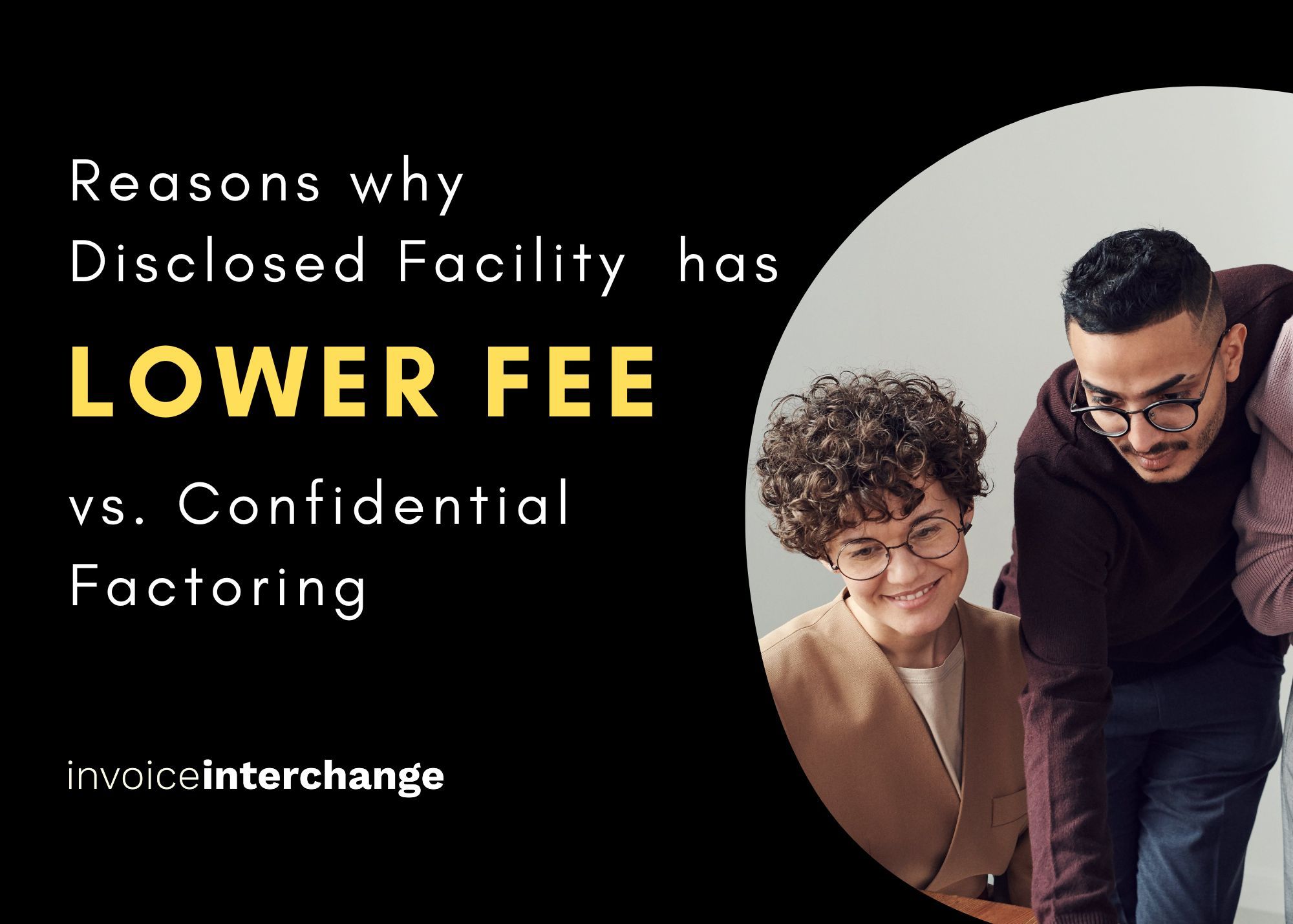
Reasons why Disclosed Invoice Factoring has Lower Fees vs.Confidential Factoring
Invoice factoring is a versatile financial tool that allow businesses to enhance cash flow by selling their unpaid invoices to factoring companies in exchange for immediate capital. However, not all factoring arrangements are created equal. There’s a fundamental distinction between disclosed and confidential invoice factoring facilities, and it’s the former that often comes with more favorable cost structures. In this article, we’ll explore why disclosed invoice factoring is generally cheaper than confidential factoring.
Understanding Disclosed and Confidential Invoice Factoring
First, let’s clarify the key differences between these two types of invoice factoring:
Disclosed Invoice Factoring: In this arrangement, your customers are fully aware of the factoring relationship. They make payments directly to the factoring company, and the factoring company verifies the invoices and manages collections.
Confidential Invoice Factoring: In a confidential factoring facility, the factoring arrangement remains hidden from your customers. You retain control of invoice collection, payment, and credit management.
So, why is disclosed invoice factoring often the more cost-effective option? Let’s delve into the reasons:
Reduced Risk for the Factoring Company
The most significant factor contributing to the cost difference is risk. In disclosed factoring, the factoring company deals directly with your customers. When your customers have a strong creditworthiness and a history of timely payments, the factoring company has lower risk exposure. They are more confident in the reliability of your customers’ payments, leading to fewer potential disputes and delays.
Lower Risk Premiums
Factoring companies include risk premiums in their fees to account for the possibility of non-payment or disputes. In disclosed factoring, these risk premiums tend to be lower because the risk of non-payment by creditworthy customers is reduced. As a result, the overall cost of the factoring service is typically more competitive.
Faster Payment Processing
When your customers have strong credit profiles and payment histories, they are more likely to make payments promptly. In disclosed factoring, the factoring company can contact your customers for payment verification and collection, reducing delays. Faster payments can translate into lower holding periods for factored invoices and a decrease in the total cost of factoring.
Transparent Collections
In disclosed factoring, the transparency of the collections process can benefit both your business and your customers. Your customers are aware of the financing arrangement, which can maintain positive relationships. Additionally, the direct engagement between the factoring company and your customers simplifies the payment and collection process.
Disclosed invoice factoring is often the cheaper option when compared to confidential factoring due to several key factors, including reduced risk for the factoring company, lower risk premiums, faster payment processing, and transparent collections.
When choosing between the two, it’s important to weigh the cost savings against your business’s priorities, customer relationships, and confidentiality concerns. Depending on your specific needs and circumstances, disclosed invoice factoring can provide an effective and cost-efficient solution to boost your working capital while maintaining strong customer relationships.
Want to learn more about the product? Talk to one of our team member at InvoiceInterchange to see how we can support your business cash flow. There is no obligation.
Related Articles

The Ultimate Guide to Invoice Factoring: How to Boost Your Cash Flow

Navigating Cash Flow: The Best Invoice Financing in Singapore for Businesses
